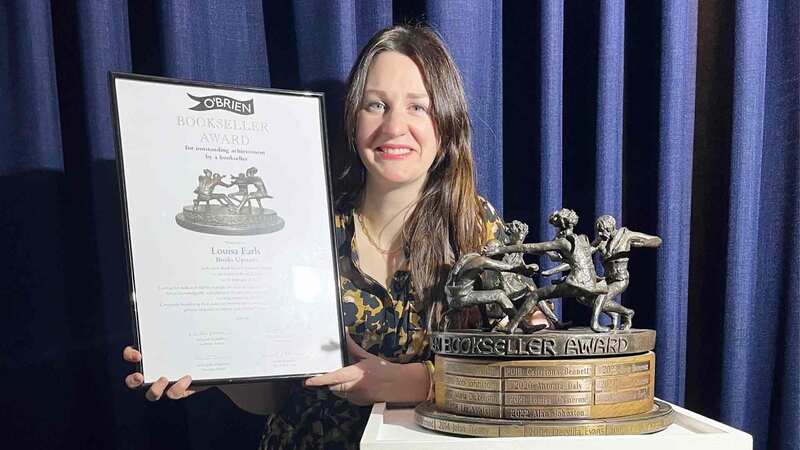You are viewing your 1 free article this month. Login to read more articles.
Kingsolver and Lafarge longlisted for The Laurel Prize
Barbara Kingsolver (pictured above) and Daisy Lafarge are in the running for Poet Laureate Simon Armitage’s Laurel Prize, with the longlist dominated by indie presses from across the world.
It is the second year of the nature and ecopoetry award, which is funded by the £5,000 honorarium Armitage receives annually from the Queen. Run by the Poetry School, the prize is awarded annually to the best published collection of environmental or nature poetry.
This year it opened to submissions in the English language from poets globally and the selected titles include those published in Canada, America and New Zealand. The longlist, whittled down from 63 entries, was judged by chair Maura Dooley, poet Imtiaz Dharker and ClientEarth founder, lawyer and poet James Thornton.
There were two Penguin titles nominated on the 20-strong longlist with Sean Borodale's Inmates and Seán Hewitt Tongues of Fire but otherwise it was taken up with independent presses. Kingsolver is recognised for How to Fly (Faber) while Jen Hadfield’s The Stone Age (Picador) also secured a spot.
Granta features with Lafarge’s Life without Air, as does Carcanet for Thomas A Clark’s The Threadbare Coat, alongside various other UK-based indies. Rite of Passage by Dom Bury (Bloodaxe) is nominated alongside Ricky Ray’s The Sound of the Earth Singing to Herself (Fly on the Wall Press), Tim Cresswell’s Plastiglomerate (Penned in the Margins) and Maskwork by Gregory Leadbetter (Nine Arch Press).
London-based indie Bad Betty Press nabbed two spots on the longlist with Animal Experiments by Anja Konig and Kirsten Luckins’ Passerine. Another London-based press, Offroad Books, is also represented with Will Burns’ Country Music. Sheffield publisher Longbarrow Press is recognised for J R Carpenter’s This is a Picture of Wind as is West Yorkshire poetry press Arc Publications for Brimstone by John Kinsella. Cath Drake has been longlisted for The Shaking City, published by Seren Books in Wales.
Further afield, Graywolf Press in Minnesota, in the US, is in the running with Natalie Diaz’s Postcolonial Love Poem, tussling with Ash Davida Jane’s How to Live with Mammals, published by Victoria University Press in New Zealand. Giramondo Publishing in Australia has also found a place with Kristen Lang’s Earth Dwellers as has Rasiqra Revulva’s Cephalography, published by Wolsak & Wyn in Ontario, Canada.
Armitage described the longlist as “a world-wide and world-class selection of books reflecting poetry’s global response to the planet’s precarious environmental situation".
Sally Carruthers director of the Poetry School, said: “To open the prize this year, when Glasgow hosts the COP26 summit, to poets from all over a Covid-stricken planet, has been a privilege. To read such diverse and inspiring, often transcendent, work from all corners of the globe sharing a commitment to unite in the fight for our planet and the life it contains has been an honour and a delight.”
The prize awards first, second and third prizes of £5,000, £2,000 and £1,000 respectively. There is also a £500 award for Best First Collection. Additionally, each of the winners will receive a commission to create a poem based in their favourite landscape.
On 8th October The Yorkshire Sculpture park is hosting the prize ceremony with a day of poetry readings and workshops. Last year's prize went to Pascale Petit for Mama Amazonica (Bloodaxe Books).



















